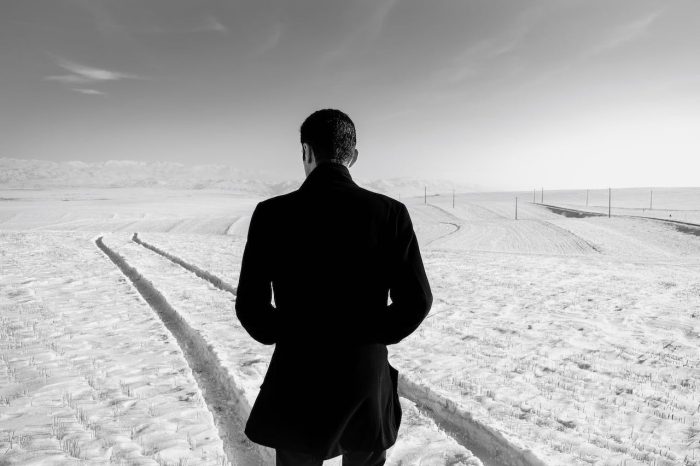As a counselor, friend, and human being, I don’t feel there is anything more universally experienced yet complicated than grief.
There are many different approaches to handling it and even stages that exist.
Elisabeth Kübler-Ross introduced a model in 1969 that outlined five stages: denial, anger, bargaining, depression, and acceptance. While these may outline some of the everyday things we experience with grief, they in no way capture the sheer complexity of how we experience them and what might come with it around our losses. I will address grief in a broader sense and move on to the specifics of grief around death and dying.
Generally, most people assume grief to be related to death. While this may be the most common reason we recognize grief in life, this emotion and experience can be connected to any loss we may experience. This means relationships, opportunities, abilities, and many other losses should be considered something to grieve over and acknowledge as a loss if it is significant to us. This means people who may have had bad childhoods where they had to either grow up fast or go through some of the terrible things the world brings our way could benefit significantly from acknowledging this and finding ways to grieve appropriately as part of their healing.
Too often, we think people just need to keep going and that these things don’t matter, but with a world that is increasingly producing PTSD-provoking experiences, people would do well to acknowledge how this impacted them and then find ways to heal and move forward rather than just thinking it hasn’t affected them. The days of simply pulling ourselves up by our bootstraps are gone, and it is shown that it simply won’t work like people try to play it off well. So many of the issues and problems we face today are a direct result of this mindset, and it simply won’t work.
Having an opportunity to reframe or change how we see these things can, in fact, go a long way, but we first have to acknowledge what they really were like and how they impacted us. I recognize this in myself and others.
I struggled for many years because of the things I’ve lost and can’t regain. I didn’t have a childhood, never really went to high school, and essentially grew up around some of the most horrendous things this world has to offer. I tried to forget and move on simply but was haunted by flashbacks, nightmares, triggers, and the whole lot for years of my life after. I couldn’t simply “move on.” Even though far removed from this, it was still a part of who I was, and I had to acknowledge this as my darkness and what these losses have meant to me.
I can now look back with a lot of gratitude as that helped me to become who I am today. It took (and is still taking) years of counseling to become who I am today. I have also been supported by many wonderful people who believed in me and helped me to form the person I am in my life now. That is a person who works hard to help others to work through their grief and loss toward hopefully being able to look back one day with gratitude for the things that make them who they are, both good and bad. I hope one day to help find a way to truly help people receive the fantastic things that can come no matter how life has hit them, and I believe working through grief is a key part of this process of finding meaning and connection in their lives.
This brings us to the topic of grief when we lose people in our lives. I, like many other people who grew up in rough circumstances, am no stranger to losing people. My first losses in life happened when I was 14, and I lost a grandmother and friend about a week from each other. I knew my grandmother was sick, and the friend was unexpected. I knew from then on that life was definitely limited, and it was, in essence, a wake-up call to my own mortality as the friend was close to my age.
In the 22 years since that time, I have lost more people who have been friends, family, and acquaintances. I have seen people struggle and suffer over the losses of the people in their lives and have often been significantly impacted by the compassion and empathy I have experienced for those who have lost people. Empathy comes from connecting with ourselves to recognize the experiences of others, and this is something I think we all do that helps us better understand how a person might be experiencing these losses.
The one thing this didn’t help me with was when I lost my best friend. It literally broke my heart and was like something I didn’t even know was possible. Usually, I am able to manage well in emotional areas and stay strong, but I truly found this to be an area that broke me. It was also hard as his whole family is like a second family to me. I absolutely lost it as his widow, children, parents, siblings, and nieces and nephews wept over his casket. No matter how much I tried to manage and stay strong, this was the most painful thing I have ever experienced. It would take an emotion to help me work through this type of pain.
When we think of the process of grief explained by Elisabeth Kübler-Ross, some of those are emotions, as she mentions anger and depression. Bargaining and denial are more of a logical or thinking process. Acceptance is generally an experience we have when we feel like we resolve the other areas. I felt most of these areas for sure. I was even called out while bargaining in a counseling session by my own counselor. This all helped in a way, but the overwhelming pain and anguish around this loss were still present. I had dreams and would wake up balling. I even had nightmares about this loss. I knew that there was a piece of the puzzle I had not figured out yet in this area. So, I decided to practice one of the only things I could tie to the loss of my friend and the pain I was feeling. Gratitude was my light at the end of the tunnel.
We often hear having an attitude of gratitude goes a long way. I don’t believe it is an attitude as much as it is a practice. I had to practice finding things I was grateful for in having my friend in my life. He impacted me more than any other person, and this practice helped me recognize this more. I have a great second family because of him, and now, even a year later, I feel more connected to them than ever. I see how my life has changed drastically because of the early days, 14 years ago in our friendship. I remember many big and small things that he did with me and for me. This helped me understand the pain and anguish better and recognize why they were there. I will likely always have that in some capacity, but rightfully so. I lost a person who impacted my life in such a positive way that it will likely never happen again. So now I practice gratitude even for the pain and anguish because that means that my friendship and love for my friend meant something.
I have chosen to practice gratitude and feel like it helps me. Grief is highly complex, and there are no easy answers, but I have found this to be my answer, and I hope it can help other people in what they may be struggling with. The one thing I know that we all need is a connection with other people while we mourn our life losses and the losses of the people we love. Showing gratitude can help us forge those connections and bonds better.
Practice gratitude, compassion, and empathy, and we will all make the world a little better.
~
Please consider Boosting our authors’ articles in their first week to help them win Elephant’s Ecosystem so they can get paid and write more.












Read 13 comments and reply